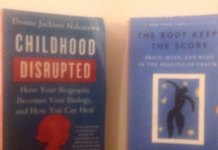Therapy Changes the Brain, Reduces Anxiety
After undergoing a nine-week cognitive behavioral therapy (CBT) treatment for social anxiety, patients show changes to both the physical structure of their brain and its activity, according to a new study published in Translational Psychiatry. The amygdala is most closely associated with the experience of fear and this study found that patients receiving CBT with reduced social anxiety had significant changes to this section of the brain.
Do We Need More Hospital Beds?
In an article published by the Treatment Advocacy Center, The Shortage of Public Hospital Beds for Mentally Ill Persons, the authors (D. J. Jaffe and E. Fuller Torrey) present the idea that we have far too few hospital beds in this country, and because of that there has been a dramatic shift towards the diversion of people labeled with mental illness into prisons and homelessness. Their answer to this issue is that we should radically increase the amount of hospital beds and we should also dramatically increase our reliance on outpatient treatment in the form of mandated involuntary medication programs. As many people know here, the TAC has been highly influential politically and the authors of this paper have been instrumental in getting laws passed that mandate the outpatient use of psychiatric drugs for people who have been civilly committed.
“The Psychologists Take Power”
Tamsin Shaw, writing in the New York Review of Books, summarizes the most recent trends in psychology and moral judgement. From Skinner’s behaviorism to...
Meditation + Exercise = ↓ Depression
A study released in Translational Psychiatry reports that "Although previous research has supported the individual beneficial effects of aerobic exercise and meditation for depression, these findings indicate...
A Shot Against Post-Traumatic Stress Disorder
From Scientific American: Last year, a study at the University of Colorado Boulder found that injecting mice with beneficial bacteria helped increase their resilience and decrease...
“Politicians and Experts Meet at Parliament to Explore Record Antidepressant Prescribing and Disability”
The All-Party Parliamentary Group for Prescribed Drug Dependence is meeting today, May 11th, to discuss evidence of the link between the rise in disability...
Culturally Numb
Experiencing emotional pain is a necessary part of life. Emotional pain often contains valuable lessons to help us on our journeys. We need to make sure we are not numbing our hearts to those that are hurting. We need to de-stigmatize the struggles, joys and pains that come with being human. We need to not just mindlessly pursue happiness - though we might think of that as an inalienable right - and avoid pain. We need to do the only thing that brings true joy: embrace all of life and each other, as we experience together all that makes us human.
Why Some Children with Depressed Parents Show Resilience
Children of parents who suffer from depression have a severely heightened risk of mental health problems, but new research points to several factors that seem to strengthen young peoples’ resilience and predict good mental health.
Women are Flocking to Wellness due to Sexism in Healthcare
From Quartz: Seeking healthcare in the medical system can be a dehumanizing experience for women: doctors often dismiss women's pain as psychological rather than physiological, and...
Four-Part Series on Drug Abuse, Trauma, and How to Heal It
In this four-part series on drug abuse and trauma, Parents Opposed to Pot provides an overview of the impact of adverse childhood experiences, how they persist, and...
Group Mindfulness Shows Promise Reducing Depression Associated with Hearing Voices
A new study out of Kings College London found that twelve sessions of a group mindfulness-based therapy relieved distress associated with hearing voices while reducing depression over the long-term. The person-based cognitive therapy (PBCT) intervention had significant effects on depression, voice distress, voice controllability and overall recovery.
Mindfulness Therapy May Be More Effective Without Antidepressants
While an estimated 74-percent of patients diagnosed with major depression receive a prescription for an antidepressant, new research reveals that mindfulness-based cognitive therapy (MBCT)...
“Psychiatry’s Mind-Brain Problem”
A New York Times Op-Ed by Cornell psychiatry professor George Makari connects the surprise over the results of the widely-covered RAISE study to American psychiatry’s shift toward pharmacology and the oversimplification of disorders as brain diseases.
Teen Raising Awareness After Exercise Saved her Life
From Elite Daily: Courtney Lorking, an 18-year-old online wellness coach and fitness enthusiast, is speaking out and sharing her story of how exercise helped her...
Webinar Discussion – Rethinking Madness
A free recording of last week's webinar anchored to Phil Borges' Crazywise, a documentary exploring alternative approaches to mental health, is now available. Over 4,000 people...
Mad Economy: Let’s Change the World!
Everyone in the world is either touched by their own mental health issues or have had a family member affected. What if they directed their buying power to an organization that would use the profits to fund exciting mental health & recovery projects both in the developing world and in their own countries; projects that would be ethical, non-coercive, personal recovery-based, and were aimed at creating recovery communities? What if they could buy products, crafts, services, art, music, books from people who had experienced mental health issues, enabling them to set up their own businesses or buy from social co-operatives that enabled distressed people to work and earn a living wage?
Childhood Anxiety Disorders Are Treatable With Therapies
From MinnPost: According to psychologist Hal Pickett, childhood anxiety is best reduced through self-care and common-sense therapies such as getting enough sleep, maintaining a balanced...
Clinton Releases Mental Health Plan
Today, Hillary Clinton’s campaign released their plan for addressing mental health care in the United States. The plan calls for a full integration of...
Psychologist Rethinks Psychotropic Medications, Calls for Renewed Dialogue
Psychologist and Professor Amber Gum has published the story of her personal journey of rethinking psychotropic medication in a special issue on "The Politics of Mental Health" in The Journal of Medicine and the Person. Influenced by Mad in America and the work of Robert Whitaker, Gum became aware of evidence that “suggests that psychotropic medications are less effective and more harmful than most believe” and now hopes to encourage other mental health professionals and researchers to engage in open-minded, critical self-assessment of standard practices.
Confusion Over Antipsychotic Dosing Data in RAISE Study
Yesterday, the New York Times reported that schizophrenia patients in an experimental treatment program (RAISE) who experienced better outcomes had been on lower doses of antipsychotics than normal. However, the article published in the American Journal of Psychiatry on Tuesday did not divulge any data on the varying antipsychotic drug doses in the different study groups.
Family Oriented, Home-Based Treatment Best for Youth with Symptoms of Psychosis
A pathbreaking new study out of Finland suggests that early intervention programs for youth experiencing psychotic-like symptoms may see the greatest improvement when treatment works within the home rather than in a hospital setting. The research, to be published in next month’s issue of Psychiatry Research, found greater improvement in functioning, depression, and hopelessness among teens in a new need-adapted Family and Community oriented Integrative Treatment Model (FCTM) program.
The Evidence-Based Long-Term Treatment for Depression
While antidepressants are the most commonly used long-term treatment for depression, the efficacy of these drugs after one year is unknown. In a commentary for The Lancet, psychiatrists Rudolf Uher and Barbara Pavlova suggest that cognitive behavioral therapy (CBT) now has the most substantial body of evidence for long-term treatment for major depressive disorder.
Depression Discrimination More Severe in High Income Countries
According to a study published in this month’s British Journal of Psychiatry, people diagnosed with depression in high-income countries are more likely to limit...
Mental Well-Being and Engagement in the Arts
Public health researchers at the University of Western Australia examined the relationship between recreational arts engagement and mental well-being in the general population. The results, which have implications for policy makers as well as health practitioners, indicate that those who engage with the arts for two or more hours per week have significantly better mental well-being.
Call For Abstracts: Philosophical Perspectives on Critical Psychiatry
The Association for Advancement in Philosophy and Psychiatry is issuing a call for abstracts, with a particular interest in submissions from service users. The...
















